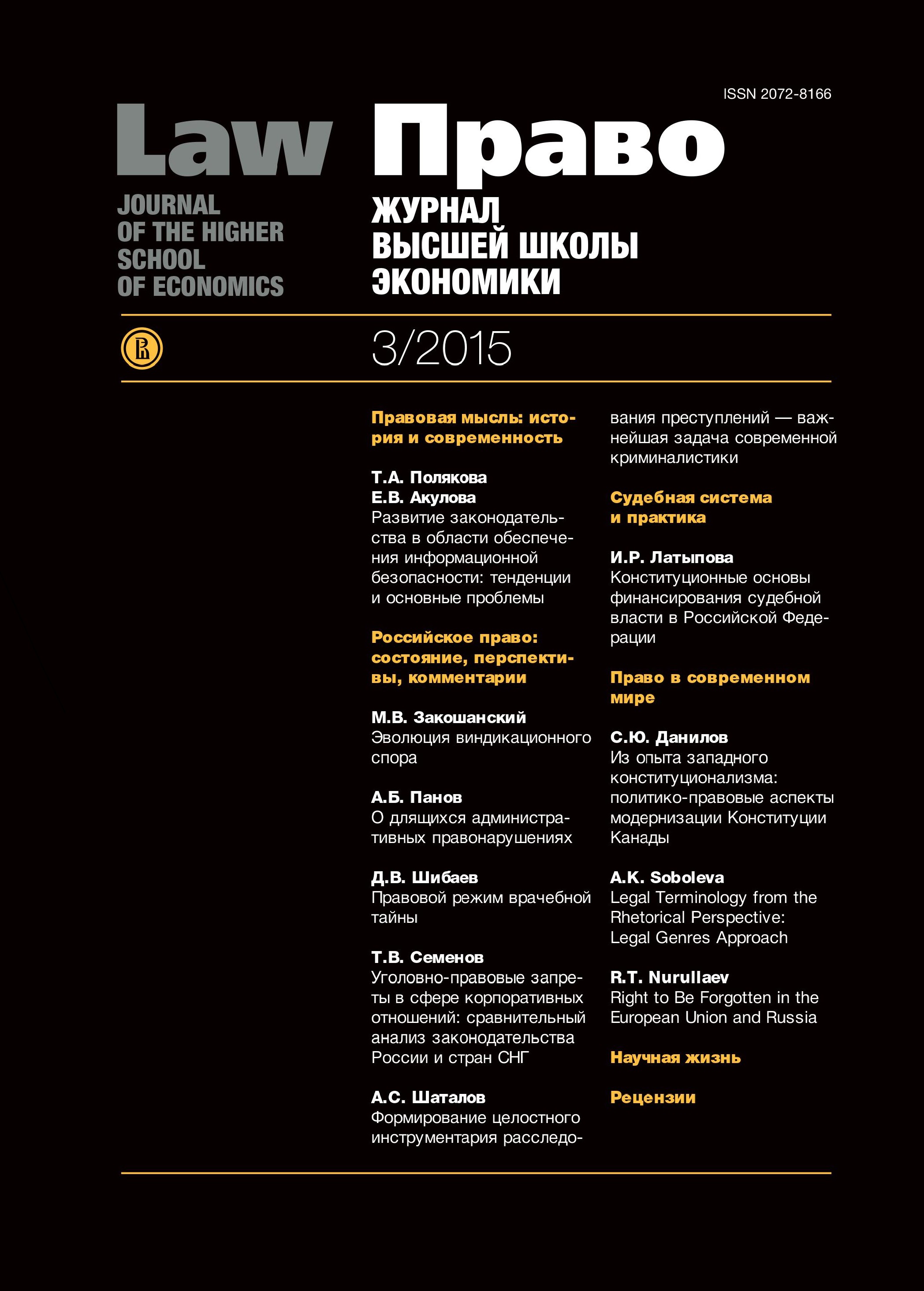Правовой режим врачебной тайны как информационно-правового объекта
Аннотация
Статья посвящена информационно-правовым аспектам обеспечения режима врачебной тайны, создания необходимых условий — правовых, организационных, моральных — для ограничения доступа не уполномоченных лиц к информации о пациенте. Проводится историографический анализ развития законодательства в сфере формирования режима врачебной тайны — Уложения о наказаниях уголовных и исправительных, Нюрнбергского кодекса, Женевской декларации и др., проводится их сравнительно-правовая характеристика с действующим законодательством. Дан анализ правовой конструкции «врачебная тайна», ее соотношения и различия с медицинской тайной. В статье проводится сравнительно-правовой анализ действующих нормативно-правовых актов, регулирующих режим тайны, в то же время указывается, что абсолютным этот режим назвать нельзя — существуют установленные законодательством основания истребования указанных сведений без согласия пациента. Часто возникают ситуации, когда Федеральный закон от 21.11.2011 № 323-ФЗ (ред. от 13.07.2015) «Об основах охраны здоровья граждан в Российской Федерации» вступает в противоречие с иными законодательными актами, что приводит к различиям в правоприменительной практике. Указанные ситуации исследуются автором на основе материалов судебной практики в части обжалования решений должностных лиц по факту не предоставления адвокату сведений о его доверителе, составляющих врачебную тайну. В статье детально исследуются вопросы оснований истребования указанной информации в принудительном порядке третьим лицом для обеспечения его профессиональной деятельности — адвокатом, страховой организацией, представителями комиссии по делам несовершеннолетних и защите их прав. Исходя из анализа практики и сравнительно-правового исследования действующего законодательства, сформированы отдельные предложения по изменению ряда нормативно-правовых актов, в частности, Федерального закона от 31.05.2002 № 63-ФЗ (ред. от 13.07.2015) «Об адвокатской деятельности и адвокатуре в Российской Федерации» и Уголовно-процессуального кодекса Российской Федерации. Дискуссионным является вопрос о критериях и допустимости наследования сведений, составляющих врачебную тайну. Проводится аналогия этого принципа наследования с авторским правом и ставится проблема ее правовой состоятельности, аргументируется позиция автора. Отдельно рассматриваются аспекты уголовной, административной, гражданско-правовой и дисциплинарной ответственности за нарушения законодательства в сфере обеспечения режима врачебной тайны должностным лицом.


















